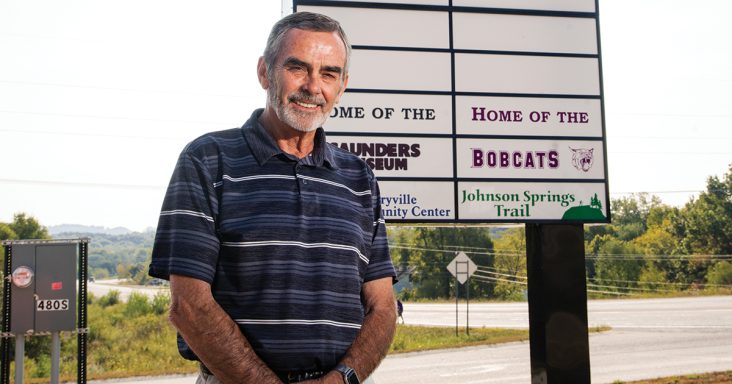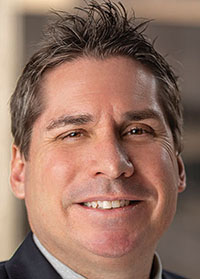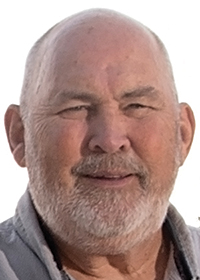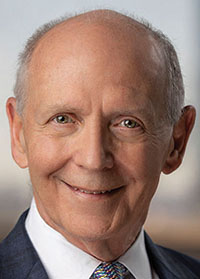380-acre business park in Berryville allows for tax incentives for investors
by September 27, 2024 12:57 pm 551 views

Berryville Mayor Tim McKinney believes the city’s business park is one of the most affordable development opportunities in the region.
The Berryville Regional Business Park at 480 U.S. Highway 62 comprises about 380 acres of city-owned land, formerly a farm. It’s within an opportunity zone, which can provide investors with various tax incentives.
Berryville Mayor Tim McKinney said the land, known as the Ansel Hutchison farm, became available when the city’s existing business park was about to reach capacity, and the city was looking for land for expansion.
Berryville, with a population of nearly 5,800, is one of the two county seats in Carroll County. Eureka Springs is the other.
The city of Berryville purchased the land for the business park in separate deals in 2017 and 2020 for a combined $1.48 million. McKinney said a group of local banks provided financing. The city has since annexed and started improving the land. Asked why businesses should locate there, McKinney cited its location on Highway 62 and that it’s “one of the more affordable business parks in Northwest Arkansas as far as the price of the land.”
Because the business park is in the city, “we can offer a great quality of life. We’ve got a good work ethic in this town, so the business park is just a reflection of the community. And I think our community is what’s going to really sell the park.”
Gary Smith, director of business development and partner at Kelley Commercial Partners, said the land is listed for $25,000 to $50,000 per acre, with the latter for highway frontage and the previous for industrial land further in the park. McKinney said the city is flexible on price based on the prospective development’s economic impact.

“What’s this business or this industry going to do for Berryville? What are they going to contribute back to the community in taxes and payroll … ? We will look at that when we’re talking to our clients, but as a rule, our land starts in the range of $25,000.”
He noted that the city wouldn’t sell the industrial land to a prospective buyer for $50,000 an acre if the buyer’s development only created two jobs.
“That’s not our mission,” he said. “Our mission is to create jobs … wisely and … use the city’s money wisely. We’re not trying to make money, so to speak, on our business park. We’re trying to promote Berryville and our growth and get jobs in our area.”
FEDERAL GRANT
The city received a $1.5 million grant from the U.S. Commerce Department’s Economic Development Administration for infrastructure improvements to the business park, including street and drainage work and wastewater extensions. The city’s acquisition of a portion of the Ansel Hutchison farm in 2017 helped to secure the grant.
McKinney said the grant allowed the city to complete infrastructure improvements on about 100 acres of the business park site. In addition to the grant, the city contributed between $1.5 million and $2 million for the work.
“With that grant, we were able to get everything shovel ready to go,” said McKinney, adding that the infrastructure has been installed for prospective buyers. “If somebody shows up, we don’t have to tell them we’re going to have to put in water … streets or sewer. It’s there, and that grant is what allowed us to do that.”
McKinney said the first phase of the infrastructure has been completed. This phase was the most expensive as the city installed a sewer lift station and built new roads. The remainder is expected to be ready for construction in the next year, but the city has land ready to be worked on, he said.

Dean Lee, economic development director for the city of Berryville, said the infrastructure already in place includes a road that connects with the highway and a county road that goes through the property.
“We have … water and sewer connected to all that,” he said. “We have gas right there readily available. We have telecommunication fiber that runs through there as well as electricity. So, all of it is readily accessible waiting on a client in that initial first phase. The second phase we do have a little bit of extension in there, but it is just waiting for a client and the gas, electrical and the telecommunications.”
OPPORTUNITY ZONE
The business park is within an opportunity zone, which provides investors with tax incentives.
“An opportunity zone is basically a tax incentive program for areas that have not had a lot of development,” McKinney said.
Arkansas has 85 certified opportunity zones, Lee said.
“We feel very fortunate to be one of those even though we are a very progressive community. But it does provide opportunities for investors that allow them to get tax incentives, tax deferrals, partial forgiveness on capital gains and other tax-free investment that they get from their capital gains appreciation.”

McKinney said those who locate within an opportunity zone and remain there for 10 years receive capital gains for their investment. Smith noted that investors can sell before the 10 years but would pay a penalty.
“They can also have partial forgiveness if they say, ‘Hey, I want to keep it five years,’ then they have to pay a 10% adjustment price. And if they did it in seven years, it’d be 15% adjusted on the capital gains,” Smith said. “So you can sell it in five-, seven- or 10-year increments, but you would pay a penalty if you do it early. If you keep it for the 10 [years], then you don’t have to pay any capital gains on it.”
Jim Dailey, vice president of government relations for Kelley Commercial Partners, highlighted the benefits of the opportunity zone, including the “possible tax-free investment appreciation for qualified investments over 10 years. It’s intended to help the purchaser to be inclined to develop on this spot on the map as opposed to maybe just going somewhere else that this zone does not exist.”
PROSPECTIVE INVESTORS
The city has one client under contract looking to locate at the business park, McKinney said. It’s expected to be a $65 million investment, and the city hopes to close on this soon. He added that the opportunity zone was a “big incentive” for the client, which declined to be named.
Lee said the city has been working with this client for more than a year. Plans include a production plant on about 90 acres, or about one-third of the business park, and a solar farm. He noted this client would complement the green, eco-friendly customers that the city is trying to attract to the business park.
McKinney said several smaller investors, including hotel developers, have also considered locating there. However, they’ve yet to commit. Smith said the business park is “open to all types of businesses,” comprising retail, restaurant and hospitality developments at the front. The middle might include offices, including medical, and further in would be for industrial developments. McKinney wants to see more retail businesses there.
“That’s a big part of economic development I think that’s overlooked for a lot of towns because … cities in Arkansas they pretty well operate off of sales tax,” he said. “That’s their bread and butter.”
Dailey said they’ve been working to attract a “major retail operation” for about three years, and the client views Berryville as “a regional spot” rather than only considering the city’s population.
“Berryville is in a rocking horse or saddle position right there that puts them in the middle of all these things that bode well for the future,” the former Little Rock mayor said.
Lee said Berryville is a “regional hub” and noted the Walmart in Berryville serves 28,312 people in the region, based on 2022 data from the Arkansas Economic Development Commission. The business park has 22 acres of highway frontage for retail, including clothing stores, hotels and gas stations.
Egg distributor Mid-States Specialty Eggs was the first to expand into the business park. Lee said its existing facility adjacent to the park distributes 1.8 million eggs daily, and the company is doubling its footprint on 5 acres there, adding 7,200 square feet and 50 to 60 jobs. Also, Mennonite Disaster Service, a search and rescue organization, plans to locate an office on 0.5 acres at the business park.
